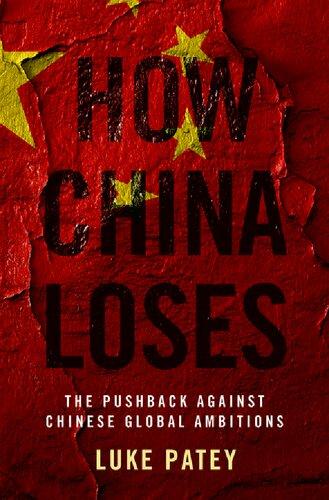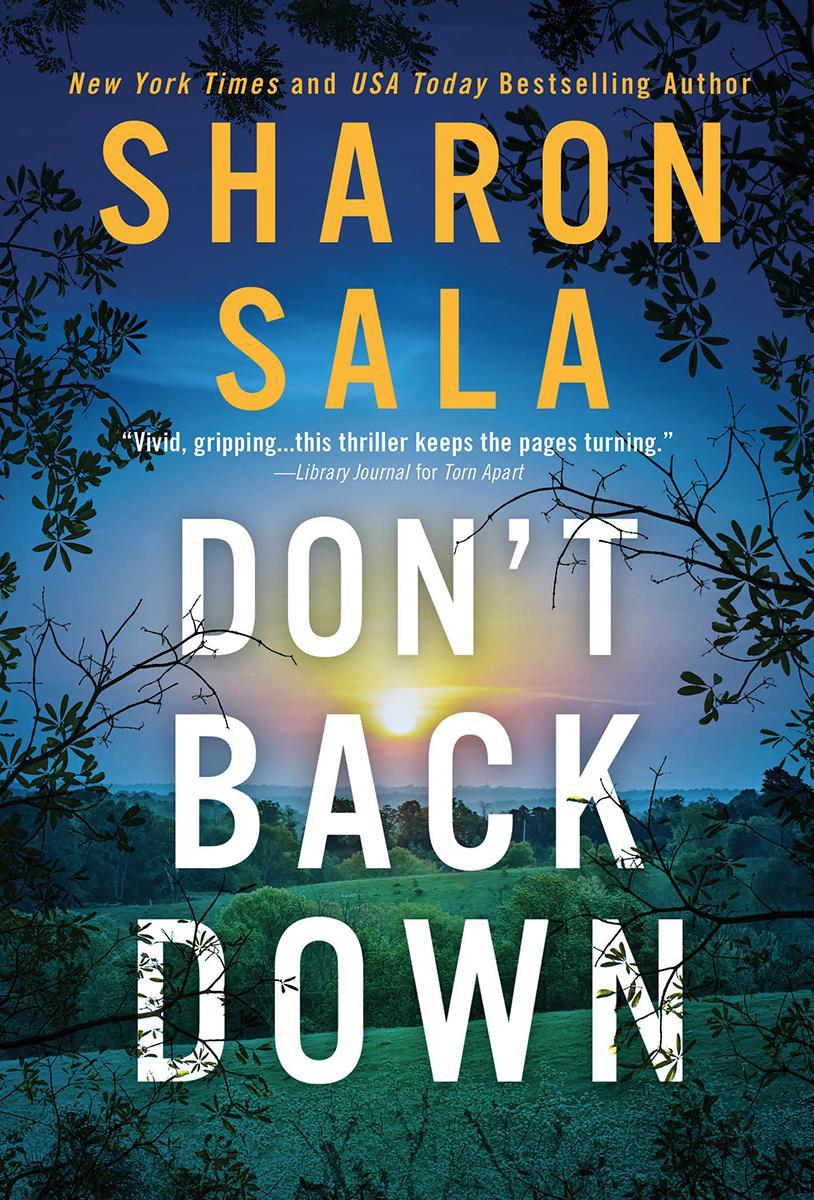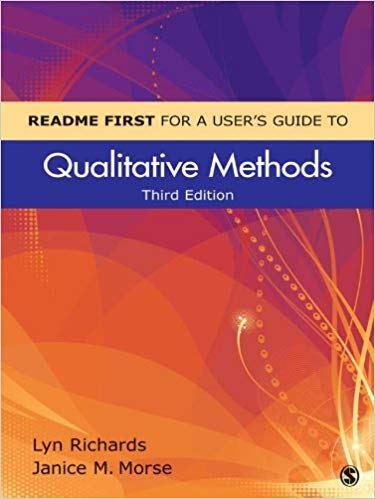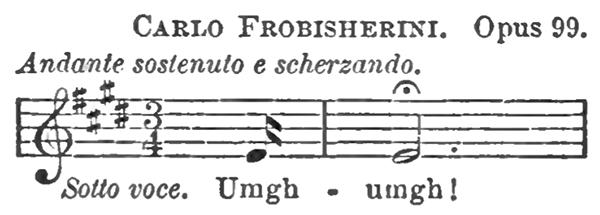Other documents randomly have different content
grinding to produce crime was actually unknown; so that our little world was just the world that he sighs for.
Victor Hugo plumes himself, I believe, upon never having learned the gibberish that the English call their language. Therefore, as I do not design having this work translated into the various modern languages (why should I, forsooth, since by the time your day rolls round the aforesaid gibberish will be the only tongue spoken by mankind?) he will never have the pain of seeing himself ranked among the upholders of slavery. Whatever he might say, however, it is very clear that no state of things heretofore existing has so well fulfilled the conditions of his ideal of society. It is no fault of mine if his ideal be absurd.[3]
For I fear me much this is no ideal world we live in.
But ah, what a lotus-dream we were a-dreaming, when from out our blue sky the bolt of war fell upon us! We lived in a land in which no one was hungry, none naked, none a-cold; where no man begged, and no man was a criminal, no woman fell—from necessity; where no one asked for bread, and all, even the slaves, could give it; where Charity was unknown, and in her stead stood Hospitality, with open doors. What tidings we had, meanwhile, of the things of the outer world, made us cherish all the more fondly the quietude of our Sleepy Hollow. The nations, had they not filled the air for a century past with the murmur of their unrest? Revolutions, rebellions, barricades, bread-riots,—agrarianism, communism, the frowning hosts of capital and labor—the rumor of these grisly facts and grislier phantoms reached us, but from afar, and as an echo merely; and lulled, by our exemption from these ills, into a fatal security, we failed to perceive the breakers upon which we were slowly but surely drifting. The lee-shore upon which our ship was so somnolently rocking was nothing less than bankruptcy. Spendthrifts, we dreamed that our inheritance was too vast ever to be dissipated; nay, we fondly imagined that we were adding to our substance. Did not our statesmen, our Able Editors, unceasingly assure us that we were the richest people on the globe, and growing daily richer? And what had
been that inheritance? A noble, virgin land, unsurpassed, all things considered, anywhere,—a land that cost us nothing beyond the beads of Captain Smith and the bullets of his successors,—a land which no mortgages smothered, no tax-gatherer devoured. But smothered and devoured it was, and by our slaves.
It is doubtful whether slavery was ever, at any stage of the world’s history, wise, from an economical point of view, though it was, of course, in one aspect, in the interest of humanity, when, at some prehistoric period, men began to enslave rather than butcher their prisoners of war. But it seems very clear, that if the conditions of any society were ever such that its greatest productive force could only be realized through the restraints and constraints of slavery, then that slavery must needs have been absolute and pitiless. No halfand-half system will suffice. Severe and continuous labor is endured by no man who can avoid it. But labor, continuous and severe, is the price paid by the great mass of mankind for the mere privilege of being counted in the census; so terrible is that struggle for existence, of the Darwinian dispensation, which, whether we be Darwinians or not, we must needs live under. This, in our dreamland, we quietly ignored. The political economists are all agreed that from the sharpest toil little more can be hoped for than the barest support of the toilers; and we were not ignorant of political economy. But is there not an exception to every rule? And were we not that exception? In our favored nook, at least, the cold dicta of science should not hold sway. And so our toilers did half work,—and got double rations. In one word, we spent more than we made. And although we could not be brought to see this, it became very plain when the war came and settled our accounts for us; for I venture to assert that in April, 1865, the State of Virginia was worth intrinsically less than when, in 1607, Captain John Smith and his young gentlemen landed at Jamestown. In other words, there had been going on for two hundred and fifty years a process the reverse of accumulation. For that length of time we had been living on our principal,—the native wealth of the soil. While, in other parts of the country, the struggle for existence had caused barrenness to bloom,
the very rocks to grow fat, in ours the struggle for ease had converted a garden into something very like a wilderness. The forests we found had fallen; the rich soil of many wide districts was washed into the sea, leaving nothing to represent them; and when the smoke of battle cleared away, we saw a naked land. It could not have been otherwise. Thoroughly imbued with the spirit of the nineteenth century, as well as the principles of the Jeffersonian Democracy, we were entangled in a system of things not compatible, profitably at least, with either. We could not forget that our slaves were human. There were ties that we felt in a hundred ways. We loved this old nurse. We humored that old butler. We indulged, here a real, there a sham invalid, until, in one word, the thing began to cost more than it came to, and it was time we shook off the incubus.
And there was a time when many Virginians, now living, began to see this; and had they been let alone, not many years would have passed before we should have freed ourselves from the weight that oppressed us. But in an evil hour there arose a handful of men with a mission,—a mission to keep other people’s consciences,—often—as certain national moral phenomena subsequently showed—to the neglect of that charity which begins at home. From that day all rational discussion of the question became impossible in Virginia; and a consummation for which many of the wisest heads were quietly laboring became odious even to hint at, under dictation from outsiders; and on the day when the first abolition society was formed, the fates registered a decree that slavery should go down; not in peace, but by war; not quietly and gradually extinguished, with the consent of all concerned, but with convulsive violence,— drowned in the blood of a million men, and the tears of more than a million women.
Well, they were only white men and women,—so let that pass, too.
[1] Obviously, as often elsewhere, Mr. Whacker here says Virginians, instead of Southerners, to avoid all semblance of sectional feeling.
[2] Written, doubtless, before the death of “The Master.”—Ed.
[3]
In my capacity of Bushwhacker, I make it a matter of business to laugh whenever I feel like it. I felt like it when, on reading the above, this parallelism occurred to me: the hero of the “Miserables”—Jean Valjean—is a thief. Now, holds our author, whenever a man is so unfortunate as to be a thief, no blame should be attached to him,—and he puts it about thus: “A thief is not a thief. Nor a crime. He is a product. A fact. A titanic fact. A thief is a man who hears the cry of a child. It is his child. It is a cry for bread. Society gives him a stone. Effacement of his rectitude. He appropriates society’s wallet. And serves society right; for ’tis society has made him a thief.”
Leaving to some coming man the task and the credit of removing from society all stain, by discovering who or what made society a thiefmaker, ’tis this that moved my Bushwhackerish soul to smile: this Jean Valjean, whom society is so wicked in producing, turns out to be a better man than any other man ever was, is, or shall be. So we, under our very sinful system, would seem to have prepared for the elective franchise a whole people lately buried in heathenism, without, as it were, half trying. Nor does this claim rest merely upon that braggartism so peculiarly Southern. The very best people on the other side—nay, the people who, by their own admission, embrace all the culture and virtue of the country—have been the first to give us this meed of praise,—yet it is notorious that very few white men are yet, with all their Bacons, and Sydneys, and Hampdens, and Jeffersons to enlighten them, qualified for that august function. Nay, even in France herself, though she is, as Victor Hugo says,—and he should know,—the mother and
the father, and the uncle and the aunt, and the brother and the sister of civilization, I believe there are Frenchmen not yet fitted to wield the ballot,— among whom, I doubt not, some profane persons would make so bold as to class the illustrious rhapsodist himself.
CHAPTER XXIX.
“Git out o’ de way, you niggers! Aint y’ all got no manners? Git out o’ Marse Billy way! I declar’ fo’ Gaud niggers ain’t got no manners dese days. Tain’t like it used to be. Y’ all gittin’ wuss and wuss.”
So saying, Aunt Polly made an unceremonious opening among the eager heads of the youngsters that were thrust into the door-way; and Billy pressed laughing through the throng, nodding here and there as he passed. His arrival was hailed with beaming smiles by the ladies, and an almost uproarious welcome by the gentlemen. The Don had already opened his heart to him before he had gotten within introducing distance, charmed by his frank and manly bearing, his hearty manner with the gentlemen, his gentle deference to each lady in turn. So Billy’s sunny face, his cordial rushing hither and thither to greet his friends, his cheery laugh as he exchanged a bright word here and there,—a laugh that revealed a set of powerful and large, though well-shaped teeth,—all this had lighted up the thoughtful face of the Don with a sympathetic glow,—a glow that vanished when, on their being introduced, Billy’s fist closed upon his hand.
Mr. Billy was always a great favorite with me. Indeed, I like to think of him as a kind of ideal young Virginian of those days,—so true, and frank, and cordial, and unpretending. But there is one thing—I have mentioned it above—that, as a historian, I am bound to confess: Billy was addicted to playing on the fiddle.
“So, young ladies,” said my grandfather (for whose annual tunes no one, somehow, had thought of calling), “you will have a fiddle to dance by, after all.” A remark that elicited a joyous clapping of hands; and there was a general stir for partners.
“Dares any man to speak to me of fiddling,” said Billy, “before I have punished a few dozen of these bivalves?”
“That’s right, Billy! Dick, some oysters for Mr. Jones! They were never better than this season!”
Billy passed into the next room, where Dick and his spouse began to serve him with hospitable zeal.
“How was she, Marse Billy?”
Billy had just disposed of a monster that Dick had opened for him, and was looking thoughtful.
“Uncle Dick, it almost makes me cry to think how much better that oyster was than any we can get at the University; indeed it does.”
Dick chuckled with delight. “I believe you, Marse Billy; dey tells me dere ain’t no better oysters in all Fidginny dan de Leicester oyster.”
Four or five students, who, like Billy, had run down home for the holidays, had collected round the doorway leading into the library, and with them several girls who were listening in a half-suppressed titter to Billy’s solemn waggery. Lifting a huge “bivalve” on the prongs of his fork, he contemplatively surveyed it.
“You are right, Uncle Dick; Solomon, in all his glory, was not arrayed like one of these!”
“Jess so! What I tell you, Polly?” said Dick, straightening himself and holding an unopened oyster in one hand and his knife in the other.
“Didn’t I say the Nuniversity was de most high-larnt school in de Nunited States?”
Polly, being Mrs. Dick, had too great an admiration for that worthy’s wisdom to do anything but simper assent.
“Jess so,”—and he held his eye upon her till he felt sure that she had abandoned all thought of protesting against his dictum,—“eben so. You right, Marse Billy; Solomon nor no other man never raised ’em like one o’ dese. Ain’t you takin’ nothin’ to-night, Marse William? Dey tells me toddy help a oyster powerful.”
“Uncle Dick,” exclaimed Billy, with admiring surprise, “how do you manage always to know exactly what a fellow wants?”
“Marse William,”—and Dick drew himself up to his full height,—“I ain’t been ’sociatin’ wid de quality all dese years for nothin’.”
The dancing being over at a reasonable hour,—Billy and the Herr furnishing the music,—the ladies retired to their rooms in the “GreatHouse,” leaving the gentlemen to their toddy and cigars; and a jovial crew they became. Billy and the Herr bore a large part in the entertainment of the company,—the former executing reel and jig and jig and reel in dashing style,—the latter improvising accompaniments,—his head thrown back, a cigar-stump between his teeth, and contemplating, through his moist spectacles, with a serene Teutonic merriment, the capers of the revellers, one or another of whom could not, from time to time, resist the fascination of the rhythm, but would spring to his feet and execute something in the nature of a Highland fling or a double-shuffle, to the great delight of the others, and of none more than my glorious old grandfather. It is needless to remark that at each one of these Terpsichorean exhibitions there was a suppressed roar of chuckles to be heard issuing from the sable throng that crowded the door-ways, and that there might have been seen as many rows of ivories as there were heads massed together there.
“It is refreshing, Mr. Whacker,” observed the Don, whose reserve was unmistakably thawing under the apple-toddy, “to see a man of your age sympathizing so heartily with us youngsters in our enjoyments.”
“Yes,” remarked the old gentleman, lolling comfortably back in his chair; “but I am not so sure that I have left all the fun to the youngsters;” and he nodded towards his empty glass; “but I believe I enjoy the capers of the boys more than the toddy.”
“Go it, Billy!” cried a student, as that artist dashed into a jig with a zeal heightened by the enthusiasm of the now slightly boozy Herr. “Bravo!” cried Mr. Whacker; “you will have to look to your laurels, Charley.”
“Oh, I resign!” said Charley, examining the rag on his finger.
“By the way, Charley, you have not yet shown Mr. Smith the old Guarnerius. Do you take any interest in such things?”
“I have a great curiosity to see it.”
“I am afraid it will not show off to advantage. I have forgotten to have it mounted with strings this Christmas. Do you know that a violin gets hoarse, as it were, from lying idle?”
“I have heard something of the kind.”
“I should have had it strung several days ago.”
“I put strings on it day before yesterday,” said Charley.
“Indeed!” said my grandfather; “but you were always thoughtful. Let us have it, Charley.”
Charley’s return with the violin made a stir among the company. Billy stopped his fiddling and came up, followed by all present, to see opened the case that contained the wonderful instrument, which was a sort of lion among the fiddlers of the county. My grandfather unlocked the case with a certain nervous eagerness, raised the lid almost reverently, and removing the padded silken covering which protected it, “Now just look at that,” said the old gentleman, his eye kindling.
I have often seen ladies take their female friends to the side of a cradle, and softly turning down the coverlet, look up, as much as to say, “Did you ever see anything half so beautiful?” And I must do the female friends the justice to add that they always signified that they never had; and I have often seen the subject of such unstinted praise, when brought before males, pronounced a pretty enough baby, but a baby seemingly in no wise different from all the babies that are, have been, or shall be; and on such occasions I can recall, methinks, some maiden aunt, for example, who has ended by getting worried at the persistent inability of some obstinate young fellow to see certain points of superiority about mouth, eyes, or nose, which to her were very clear. And so it was on this occasion,
as on many previous ones, with my grandfather. He was always amazed, when he showed his violin, at the polite coldness of the praise that it received.
“Look at those f-holes,” said he, taking the violin out of its case; “look at those clean-cut corners!” And everybody craned his neck and tried to see the clean-cut corners. “What a contour!” exclaimed the enthusiastic old gentleman, holding the instrument off at arm’s length and gazing rapturously upon it. There was a murmur of adhesion, as the French say.
“Splendid!” ejaculated Billy, feeling that something was due from him as the fiddler of the evening; thereby drawing the gleaming eyes of Mr. Whacker full upon him. “Splendid!” repeated he, in a somewhat lower tone, and looking steadfastly at the violin; for he could not look the old gentleman in the face,—knowing—the honest scamp— that he was a fraud, and saw nothing wonderful in the instrument.
“Why, hand me that old gourd you have been playing on,” said Mr. Whacker; and he snatched the fiddle from Billy’s hand. “Look at those two scrolls, for example,” said the old gentleman, bumping them together within three inches of Billy’s nose.
Billy took the two necks in his hands, screwed up his face, and tried his best to look knowing; but his broad, genial countenance could not bear the tension long; and a sudden flash of humor from his kindly eyes set the company in a roar, in which my grandfather could not help joining.
“Well, well,” said he, “I suppose I ought not to expect you to be a connoisseur in violins. Would you like to examine it?” said Mr. Whacker, thinking he detected a look of interest on the part of the Don,—and he handed him the instrument.
The Unknown took it in an awkward and confused sort of way. My grandfather looked chopfallen. “I thought that possibly you might have seen Cremonas in Europe,” observed the old man timidly.
The Don bowed,—whether in assent or dissent was not clear; nor was it any clearer, as he gently rocked it to and fro, examining the f-
holes and other points of what is known as the belly of the instrument, whether he was moved by curiosity or by courtesy. A motion of his wrist brought the back of the instrument in view. “By Jove!” vehemently exclaimed the stranger, as a flood of golden light flashed into his eyes from the unapproachable varnish; but he colored and looked confused when he saw that his warmth had drawn the eyes of all upon himself. Even Charley ceased examining the bandage on his finger and quietly scrutinized the Don out of the corners of his eyes.
But you should have seen your ancestor and mine, my dear boy. He rose from his seat without saying a single word. There was an expression of defiance in his fine brown eyes, not unmingled with solemnity. He held out his upturned hands as though he were going to begin a speech, I was going to say,—but it was not that. His look and attitude were those of an advocate who has just brought a poser to bear on opposing counsel. And such my grandfather felt was his case. “For years,” his looks seemed to say, “I have been chaffed about my Guarnerius by you bumpkins, and now here comes a man who puts you all down by one word.” He looked from face to face to see if any of the company had anything to say to the contrary. At last his eve met Billy’s. That young gentleman, willing to retrieve his disastrous defeat in the matter of scrolls and contours and f-holes, again came to the front.
“Doesn’t it shine!” remarked that unfortunate youth, approvingly.
“Shine!” shouted my grandfather, indignantly,—“shine!” repeated he with rising voice, and rapping the back of the violin with his knuckles,—“do you call that shiny?” said he, with another rap, and holding the instrument in front of Billy. “Why, a tin pan shines,—a well-fed negro boy’s face shines,—and you say that shines,” he added, with an argumentative rap. “Is that the way you are taught to discriminate in the use of words at the University?” And the old gentleman smiled, mollified by Billy’s evident confusion and the shouts of laughter that greeted his discomfiture.
“Why, Uncle Tom, if that violin doesn’t shine, what does it do?”
“Why, it—well—I should say—ahem!—in fact, it—I—”
“What would you call it, Uncle Tom?” urged Billy, rallying bravely from his rout, and trying to assume a wicked smile.
“What would I call it? I would call it well—the violin—confound it! I should hold my tongue rather than say that violin was shiny.” And the old gentleman turned upon his heel and stalked across the room; but Billy was not the man to relinquish his advantage.
“How, Uncle Tom, that is not fair,” said he, following up his adversary, and holding on to the lappel of his coat in an affectionately teasing manner. “Give us yourword.”
“Shiny! shiny!” spluttered the old gentleman with testy scorn.
“Ah, but that won’t do. Let the company have your word, Uncle Tom.” And the young rogue tipped a wink to a knot of students. “The violin is—?”
“Effulgent!” shouted his adversary, wheeling upon him and bringing down the violin, held in both hands, with a swoop.
I shall take the liberty here of assuming that my readers are, as I was myself, till Charley enlightened me, ignorant of the fact that the varnish of the violins of the old masters is considered a great point. Collectors go into raptures over the peculiar lustre of their old instruments, which, they say, is the despair of modern makers. I have myself seen, or at least handled, but one of them,—my grandfather’s old Guarnerius,—and that, certainly, was singularly beautiful in this respect.
“Effulgent!” cried he, his noble brown eyes dilated, his head tossed back and swaying from side to side,—tapping gently, with the fingernails of his right hand, the back of the violin, upon which the light of a neighboring lamp danced and flamed. The students indicated to Billy, in their hearty fashion, that he had got what he wanted, and Mr. Whacker, spurred on by their approval, rose to the height of his great argument.
“Just look at that,” said he, turning with enthusiasm to one of the students,—“just look at that,” he repeated, flashing the golden light into the eyes of another; “why, it almost seems to me that we have here the very rays that, a century ago, this maple wood absorbed in its pores from the sun of Italy.”
How much more my grandfather was going to say I know not; for he was interrupted by a storm of applause from his young auditors.
“I say, boys, that’s a regular old-fashioned ‘curl,’” whispered one of them.
“Uncle Tom,” said Billy, removing the bow from the case, “does this effulge any?”
“But, Mr. Whacker,” observed a fat and jolly middle-aged gentleman, “it strikes me that the important thing about a fiddle is its tone, not its varnish. Now, do you really think your Cremona superior to a twenty-dollar fiddle in tone? Honestly now, is there any difference worth mentioning?”
“Any difference? Heavens above! Why, listen!” And the old gentleman drew the bow slowly over double strings, till the air of the room seemed to palpitate with the rich harmony. “Did you ever hear anything like that?” exclaimed he, with flushing face; and he drew the bow again and again. There were exclamations of admiration— real or affected—all around the room.
The Don alone was silent.
I remember looking towards him with a natural curiosity to see what he—the only stranger present—appeared to think of the instrument; but he gave no sign,—none, at least, that I could interpret. He was gazing fixedly at my grandfather with a sort of rapt look,—his head bowed, his lips firmly compressed, but twitching a little. His eyes had a certain glitter about them, strongly contrasting with their usual expression of unobtrusive endurance. I looked towards Charley, but his eyes did not meet mine; for he had turned his chair away from the fire, and was scrutinizing the stranger’s face with a quiet but searching look.
“It is a little hoarse from long disuse,” said Mr. Whacker, drawing the bow slowly as before.
“Give us a tune, Uncle Tom?”
“Yes, yes!” joined in a chorus. “Give us a tune!”
“Pshaw!” said the old gentleman, “it would be a profanation to play a ‘tune’ on this instrument.”
“There is where I don’t agree with you, Mr. Whacker,” put in the fat and jolly middle-aged gentleman. “The last time I was in Richmond I went to hear Ole Bull; and such stuff as he played I wish never to hear again,—nothing but running up and down the strings, with de’il a bit of tune that I could see.”
“That’s precisely my opinion,” said another. “Confound their science, say I.”
“Why, yes,” continued the jolly fat middle-aged gentleman, encouraged. “The fact is, it spoils a fiddler to teach him his notes. Music should come from the heart. Why, I don’t wish to flatter our friend Billy here, but, so far as I am concerned, I would rather hear him than all the Ole Bulls and Paganinis that ever drew a bow.”
“Rather hear Billy? I should think so! Why, any left-handed negro fiddler can beat those scientific fellows all hollow.”
My grandfather, during the passage at arms that ensued upon the expression of these sentiments, grew rather warm, and at last appealed to the Don. He, as though loath to criticise the performance of our friend Billy, spoke guardedly. “I should think,” said he, “that music would be like anything else,—those who devoted most time to it would be most proficient.”
“Of gourse!” broke in the Herr, who had not allowed the discussion to draw him very far from the bowl of toddy. “Now, joost look at unser frient Pilly. Dot yung mon has a real dalent for de feedle,—but vot he blay? Noding als reels unt cheeks unt zuch dinks. Joost sent dot yung mon one time nach Europen, unt by a goot master.
Donnerwetter, I show you somedink! Tausendteufels!” added he, draining his glass, “vot for a feedler dot yung Pilly make!”
I may remark that just in proportion as the Herr mollified his water did he dilute his English. Just in proportion as he approached the bottom of a punch-bowl did the language of Shakespeare and Milton become to him an obscure idiom.
“Won’t you try its tone?” said Mr. Whacker, offering the violin and bow to the Don.
“Oh,” replied he, deprecatingly.
“It’s of no consequence that you can’t play,” insisted the old gentleman. “Just try the tone. Here, this way,” added he, putting the violin under the Don’s chin.
It may seem strange that I, a bachelor, should be so fond of illustrating my scenes by means of babies; but as the whole framework and cast of this story compels me to marry at some future day, I may be allowed to say that the Don held the violin just as I have seen young fellows hold an infant that had been thrust into their arms by some mischievous young girl. Afraid to refuse to take it lest the mother be hurt, they are in momentary terror lest it fall.
“There! So!” exclaimed the old gentleman, adjusting the instrument.
While every one else smiled at the scene, Charley was, strangely enough, almost convulsed with a noiseless chuckle that brought the tears into his eyes.
“The old boy feels his toddy,” thought I.
The Don began to scrape dismally.
“Ah, don’t hold the bow so much in the middle!—So!—That’s better! —Now pull away! Keep the bow straight!—There, that’s right! So!—”
Charley rocked in his seat.
“Now, up! Down! Up! Down! Up! Very good! Down! Up! Bow straight!—”
Charley leaped from his chair and held his sides. Well, even Cato occasionally moistened his clay.
“So! Better still! Excellent! Upon my word, you are an apt scholar!”
Charley dropped into his seat, threw back his head, and shut his eyes.
The Don paused, smiling.
“What a tone!” exclaimed my grandfather. “Oh!” cried he with intense earnestness, “if—if I could but hear, once again, an artist play upon that violin!”
The smile passed from the Unknown’s face. A strange look came into his eyes, as though his thoughts were far away. His chin relaxed its hold upon the violin and pressed upon his breast. His right arm slowly descended till the tip of the bow almost touched the floor; and there he stood, his eyes fixed upon the ground. A stillness overspread the company. No one moved a muscle save Charley. He, with an odd smile in his eyes, softly drew from his pocket a small pen-knife and held it in his left hand, with the nail of his right thumb in the notch of the blade.
Slowly, and as if unconsciously to himself, the Don’s right arm began to move. The violin rose, somehow, till it found its way under his chin.
Charley opened his knife.
There were signs in the Unknown’s countenance of a sharp but momentary struggle, when his right arm suddenly sprang from its pendent position, and the wrist, arched like the neck of an Arab courser, stood, for a second, poised above the bridge.
Charley passed the blade of his knife through the threads that bound the bandage about his finger, and the linen rag fell to the floor; and he rose and folded his arms across his breast.
The bow descended upon the G string. The stranger gave one of those quick up-strokes with the lowest inch of the horse-hair,
followed by a down-stroke of the whole length of the bow.
CHAPTER XXX.
The note sounded was the lower A, produced, if I may be allowed to enrich my style with a borrowed erudition, by stopping the G string with the first finger. Whimsical as the idea may seem to a musician, I have always considered this the noblest tone within the register of the violin; and such an A I had never before heard. I have already mentioned the extraordinary acoustical properties of this room, the very air of which seemed to palpitate, the very walls to tremble beneath the powerful vibrations. The deep, long-drawn tone ceased, and again the wrist stood for a moment arched above the bridge. A breathless stillness reigned throughout the room, while the Don stood there, with pale face, his dark eyes “in a fine frenzy rolling,”— stood there, one might say, in a trance, forgetful of his audience, forgetful of self, unconscious of all else save the violin clasped between chin and breast. Down came the fingers of the left hand; with them the bow descended, this time upon all four strings; and four notes leaped forth, crisp, clear, and sparkling, brilliant as shooting-stars! Then chord after chord; and, in mad succession, arpeggios, staccatos, pizzicatos, chromatic scales, octaves, fierce, dizzy leaps from nut to bridge, cries of joy, mutterings of rage, moans of despair, all were there,—a very pandemonium of sound!
It was not a composition,—hardly an improvisation, even; for neither was key sustained nor time observed. It resembled, more than anything else I can compare it to, the mad carolling of a mockingbird as he flaps and sails from the topmost branch of a young tulip poplar to another hard by, pouring forth in scornful profusion his exhaustless and unapproachable tide of song, little recking what comes first and what next,—whether the clear whistle of the
partridge, the shrill piping of the woodpecker, or the gentle plaint of the turtle-dove.
And the mad dancing of the bow went on, amid a silence that was absolute. But it was a silence like that of a keg of gunpowder, where a spark suffices to release the imprisoned forces. The spark came in the shape of an interjection from the deep chest of Uncle Dick.
But how am I to represent that interjection to posterity?
There came a pause.
“Umgh-u-m-g-h!” grunted our venerable butler. And straightway there ensued a scene which—
But future ages must first be told precisely what Uncle Dick said; for, as all Virginians, at least, know, when you limit yourself to reporting of a man that he said umgh-umgh, you have given a meagre and inadequate, certainly an ambiguous, interpretation of his sentiments. Not to go into any refinements, it suffices to say that besides a score of other umgh-umghs of radically distinct significance, there are umgh-umghs which mean yes, and umgh-umghs which mean no. For example, “Dearest, do you love me?” Now the umgh-umgh that may be supposed in this case is a kind of flexible, india-rubber yes, ranging all the way from “Perhaps” to “Oh, most dearly!” (but Charley says that it is umgh-humgh, not umgh-umgh, that means yes;) now follow up your question with a demonstration as though you would test matters,—umgh-umgh!What a no is there! “Are you crazy? Right out here in the summer-house! with people strolling all around, and the vines so thin that—”
Now, Uncle Dick’s umgh-umgh was not at all an umgh-umgh affirmative, still less an umgh-umgh negative. ’Twas rather an umghumgh eulogistic, as though he said, Words are inadequate to express my feelings. Now, a less painstaking author than myself would say no more just here; aware that every Virginian, at least, knows what is meant by the umgh-umgh eulogistic; but the
contemporary reader must pardon me for reminding him that this book has not been written entirely, or even mainly, for him, but rather for generations yet unborn,—notably the generations of the Whackers. I esteem it, therefore, singularly fortunate that my friend Charley happens to have made an exhaustive study of this same umgh-umgh language, and especially so that he has been at the pains of elucidating his subject by means of a musical notation. Know, then, oh, propinqui longinqui!—oh, manus innumerabiles Whackerorum!—that the exact sound uttered by that unapproachable Automedon was:
“An andante scherzando?” exclaimed my grandfather, on seeing the notation; “how is that?”
“’Tis because mine Uncle Richard hath neglected the study of thorough bass; hence he warbleth his native wood-notes wild,” quoth Charley.
But to return to the scene in the Hall. And I beg that the reader will place himself entirely in my hands, while I endeavor to make him realize every feature of that scene,—for it really occurred just as he will find it recorded.
Figure to yourselves, then, my countless readers and admirers, first the Hall itself, with its lofty ceiling and its spacious, well-waxed floor of heart-pine so nicely joined that it was a sound-board in itself. At one end of the room stood a piano; at the other was a vast open fireplace, in which, supported by tall and glistening andirons, there glowed a noble fire of hickory logs five feet long. The furniture in the room was peculiar, consisting of a square table of exceeding lightness, and chairs that you might toss in the air with your little finger,—all with a view to the least possible weight upon the floor,—
though I must say that they were often the means of bringing heavy weights in contact with it. Add to these a lounge of slenderest proportions, upon which my grandfather loved to recline, pipe in mouth, whenever any music was going forward; and you have all the furniture that the room possessed. Of other objects there were absolutely none upon the floor, except four cases containing the instruments needful to a string quartet; and these stood each in its own corner, as though on ill terms. The old gentleman had banished from the Hall even his collection of music, great piles of which were stowed away in the adjoining room; for he insisted that its weight would mar the resonance of the Hall. It remains but to add that upon the walls no painting or engraving was allowed. Their smooth finish showed no crack,—so that the Herr used to say that the hall, if strung, would have been a very goot feedle for Bolyphemoos, or some oder of dem chiant singers to blay on.
So much for the Hall, around which, on the Christmas Eve in question, were grouped nearly all my grandfather’s slaves old enough to be out on so cold a night, reinforced by many of Charley’s.
And I am not so sure that the outsiders were not having a merrier time than the insiders. For every now and then, throughout the evening, my grandfather might have been seen passing glasses of toddy or eggnog to one or another of the favorite old servants, as he observed them in the throng; and Charley and I saw that the rest had no cause to feel slighted. All had their share,—if not of toddy, at least of that without which all toddy is a delusion and a shadow. Then the sound of Jones’s fiddle could not be kept within-doors, and such of them as despaired of forcing their way through the masses around the windows and doors had formed rings, where, by the light of the wintry moon, the champion dancers of the two farms exhibited to admiring throngs what they knew about the doubleshuffle and the break-down; and the solid earth resounded beneath the rhythm of their brogans. To me, I remember, they seemed happy, at the time; which goes to show how little I knew about
happiness,—and I believe that they too were under the same delusion; but their early educations had been neglected.
Happy or wretched, however, let them form a frame, as it were, for the picture I would conjure up for my reader. The first note drawn forth by the Don had arrested their attention, and there was a rush for every spot from which a view could be had of the performer. See them, therefore, a few of the older ones just inside the door, the less fortunate craning their necks behind, and upon their faces that rapt attention which is an inspiration to an artist. See those others who, huddled upon boxes and barrels piled beneath the windows, are flattening their noses, one might almost say, against the lower panes. At the library door stood one or two tidy house-maids. Uncle Dick, alone, stood near the roaring fire, he assuming that his services were required.
“Hi! what dat?” exclaimed a youngster, when the strange sound first broke upon his ear; for he could not see the Don from where he stood.
“Heish, boy!” broke in a senior, in stern rebuke; “Don’t you see ’tis de new gent’mun a-playin’ on the fiddle?” And silence reigned again, a silence broken, from time to time, by a low, rippling chuckle of intense delight, and illumined, one might say, by the whites of an hundred pairs of wondering eyes.
And now let us glance at the dozen gentlemen who sat within, beginning with my dear old grandfather.
At the first long-drawn, sonorous note he had sprung to his feet; and there he stood, with both hands raised and extended as though he commanded silence. And his countenance! never had I seen it look so beautiful! A happy smile lit up his noble face, and he seemed to say as he looked from Charley to me, and from me to Charley, “At last!” And Charley stood leaning against a corner of the mantelpiece, with his arms folded, replying to his friend with sympathetic glances. It was plain to see that he was happy in his old friend’s happiness, but there was a droll twinkle in his eyes that even he
could not suppress, though he bit his lip. What it meant I could not, of course, divine.
It was a treat to behold the Herr on this occasion. With his forearm resting on the table, his fingers toying with the stem of his goblet, he leaned back in his chair and smiled, through his gold-rimmed spectacles, with a look of profound Germanic content and good nature. Not once did he remove his benignant eyes from the Don, not even when he raised his half-full glass to his lips and drained it to the last drop. Even then he watched, out of the corner of his eye, the fantastic caperings of the bow and the labyrinthine wanderings of the performer’s fingers; and slowly replacing his glass upon the table, stroked his long and straggling beard so softly that he seemed to fear that the sparse hairs would mar the music by their rattling.
One word will suffice for the jolly, fat, middle-aged gentleman. He sat with his mouth wide open, tilting back in one of my grandfather’s skeleton chairs.
Now, that was not safe.
But there is one face that I shall not attempt to describe,—that of young Jones, the University man, upon whom it flashed, like a revelation, that he had been, without knowing it, fiddling away for hours in the presence of an artist. It naturally occurred to Billy that a huge joke had been perpetrated at his expense; and after the first few notes, he tried to nerve himself to meet the explosion of laughter that he momentarily expected. But his furtive glances from side to side detected no one looking his way,—no symptom of a joke, in fact,—so that the flush of confusion began to recede, supplanted by a glow of enthusiasm. I leave it to the reader, then, to imagine the play of expression on the countenance of this big, manly fellow,—rejoicing in his strength, and brimful of rollicking humor, loving a joke even at his own expense, as he stood there before the Don; at one time carried away by the impetuosity of the performer, at another flushing up to his eyes when he reflected that, if no one else had served him that turn, he, at least, had made a fool of himself.
This is tableau No. 1, but, for clearness’ sake, let me retouch its outlines.
A large room, with a roaring fire at one end, and doors open, Virginia fashion. In the doors and windows a background—or blackground—of colored brethren and sisters, exhibiting a breathless delight, all their teeth, and the largest surface, functionary practicable, of the whites of their eyes. Within, stands my grandfather, on tiptoe, with outstretched arms, which wave gently up and down, as, from time to time, snatches of rhythm drop out of the chaos of chords and runs that are pouring from his Guarnerius. Next the jolly fat middle-aged gentleman, tilting back, openmouthed, in one of Mr. Whacker’s phantom chairs, and rather near the fire. Then Mr. William Jones himself, who just at this moment has compressed his lips, and resolved that he will smash his fiddle and break his bow just so soon as he reaches No. 28, East Lawn, U. V. Then there is the Herr Waldteufel, smiling through clouded glasses, but not darkly. Then—to omit half a dozen gentlemen—there was the inscrutable Charley, leaning, with a certain subdued twinkle in his eyes, against one end of the mantel-piece, while near the other stood, in respectful attitude, Uncle Dick, his hands clasped in front of his portly person, his bald head bent low, his left ear towards the music, his eyes fixed askance upon the fire to his right.
Midst this scene of perfect stillness stood the Don,—his body swaying to and fro. The old Guarnerius seemed to be waking from its long slumber, and, as if conscious that once more a master held it, to be warming to its work. The music grew madder. At last there came some fierce chords, then a furious fortissimo chromatic scale of two or three octaves, with a sudden and fantastic finish of fairylike harmonics,—the snarling of a tiger, one might say, echoed by the slender pipings of a phantom cicada:














